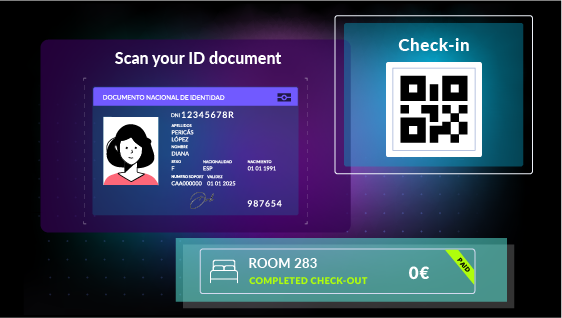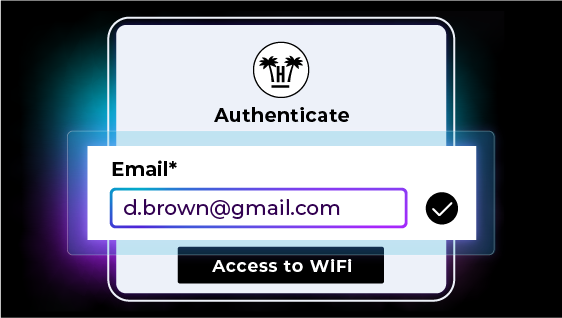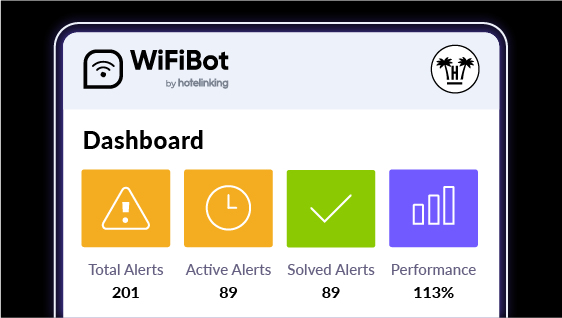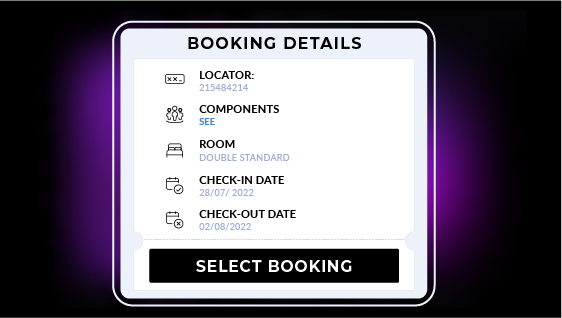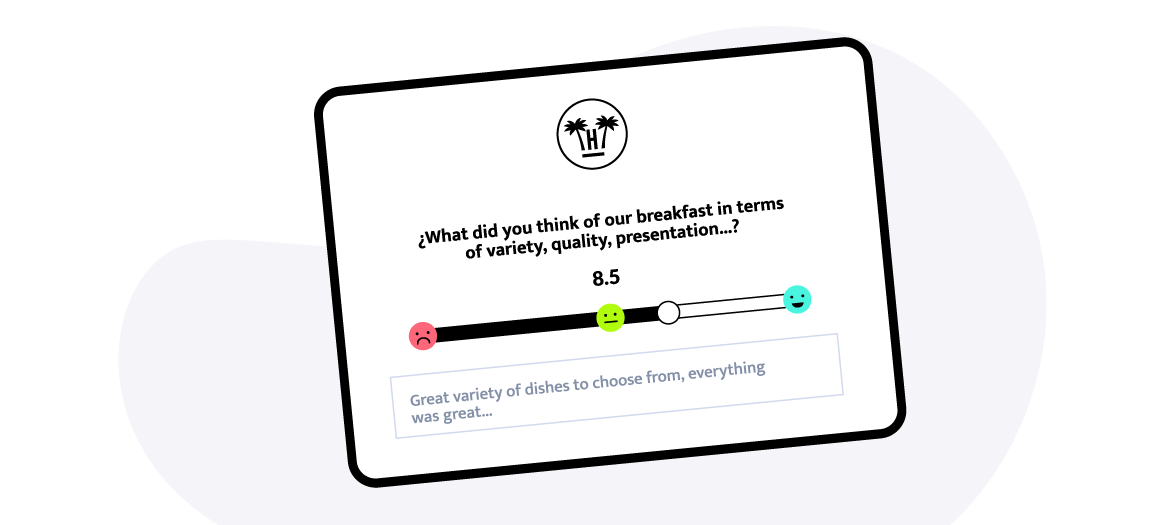
How to increase your guests’ satisfaction: methods and tips.
Collecting and analysing guest feedback is key in any hotel’s decision-making process.
When a company succeeds in meeting customer needs and expectations, it is rewarded with repeat customers. To ensure that the guest is satisfied with their stay, it is necessary to collect their impressions somehow. You certainly cannot assume that you are doing a good job simply because the numbers are positive. You have to be willing to listen to customers and value their points of view.
Satisfaction surveys are a resource for obtaining detailed information about guest expectations and experience and improving the services and attention provided to them. But, do you know if you are making the most of this tool? We explain all the essentials about surveys and how to maximise their results.
The importance of satisfaction surveys for hotels
It is unthinkable for many travellers to make a reservation without first reading what other users think about the service they are going to purchase.
Travellers’ opinions are a critical factor that influences decision making because they provide a broader and, a priori, more honest and real perspective of the hotel.
But, besides bringing credibility to an accommodation and helping it stand out from its competitors, having many reviews and a good presence on online reputation pages has a direct impact on hotel revenue: it is a fact that travellers are inclined to a hotel with the highest scores despite the price, since the quality related to the hotel score is more significant, even if they are on a budget when booking.
Therefore, it is essential to know if guests’ expectations have been met and if they have had a satisfactory stay in order to influence their perceptions and, above all, look for service areas of improvement.
Not doing so is not a possibility, especially when the business profitability depends on a determining factor in the customer’s decision-making process.
Types of satisfaction surveys
If a guest leaves the hotel without leaving feedback about their stay and other details, we are losing an opportunity that prevents any subsequent loyalty or sales strategy.
That is why it is important to find out how their stay is going during and also after their visit. The best way is to request their opinions digitally, so you can respond whenever you want and have all that information sorted and classified for further analysis.
1. Post-stay surveys: get detailed guest insights
Post-stay satisfaction surveys are probably the most popular type of surveys used by hotels. The survey is sent out once the guest has left the property and usually includes a wide range of questions about the accommodation and experience. This type of survey can offer a lot of data: from general information to essential details of different aspects such as the quality of the breakfast or how comfortable they were.
One of the main advantages is that you can modify the questions’ approach depending on the information you need to know at any given time. For example, if you have recently installed a new in-room or check-in technology, you can add questions by explicitly asking for feedback on these novelties.
Hotelinking offers this type of questionnaires. Personalised satisfaction surveys are a premium service. Each hotel can customise them and it allows for more specific questions about the property’s services and facilities. Surveys are a flexible and complete solution because they are designed so that both independent hotels and chains can take advantage of their full potential.
In the case of chains, it is possible to select whether you want the questions to be the same or different for all hotels. In the last case, each hotel can formulate the questions differently about the same category (cleanliness, WiFi connection, staff, etc.). In the end, the statistics collect the general result of the category, regardless of how the questions have been formulated.
We have a default survey with a series of predefined categories and questions that can be edited, deleted or added to facilitate its use. However, we recommend creating it from scratch to make it as personalised as possible and suit the needs and characteristics of each accommodation.
Up to a maximum of 50 questions can be asked in total, sorted by categories and created in the 7 active languages currently enabled in the control panel.
Its greatest potential lies in the variety of options for asking questions, which allows you to choose the most accurate and appropriate way to collect the information you are interested in. The questions can be mandatory or optional but also:
- Multiple choice, where guests can select an answer from multiple options. The goal of this type of answer is to be able to ask questions in detail to know and understand in depth the preferences your guests’ preferences.
- Score and comment. This question assigns points and a comment field where the guest can add their review. The information is hence more limited, but it offers a quantitative value with which it is possible to know the level of satisfaction of each question.
Among the features offered is the possibility of choosing the exact time when you want the survey to be sent and the reminder emails, should guests not complete neither the basic nor the personalised survey. You can also establish if you want to send the survey to customers who have not stayed at the hotel.
On the other hand, the information of each of the surveys received can be consulted in our suite’s dashboard and downloaded as an Excel file.
2. During the stay surveys: detects unhappy customers and acts on time
Knowing what guests think while they are in-house is essential to improve the services and brand image. But we know that sometimes it is difficult to detect when a guest has a problem and is not enjoying their holiday at the hotel.
If you do not manage to solve it in time, you run the risk of the guest leaving feeling unhappy and therefore leaving a negative review on an online reputation channel. Sending a short survey while they are in-house can help fix the problem before leaving the hotel and avoid potential negative reviews.
In some cases, it can even increase guest satisfaction, as it demonstrates a proactive and hands-on attitude, which is highly appreciated.
Our suite also has surveys specifically designed to collect guest impressions during their stay. The guest receives a personalised questionnaire in their language asking about their overall satisfaction and with a comments field.
One of these surveys’ most outstanding features is the possibility of setting a cut-off mark from 0 to 10.
Should the overall score of the survey be above the set score, the guest will be sent a review email to encourage them to leave a review on the main online reputation sites, making the most of their good opinion of the hotel.
Otherwise, if the score is below, it is possible to send a warning email to the hotel staff or the management so that they can solve the incident as soon as possible. At the same time, the system will automatically send the guest a message to let them know that their issue is being addressed.
We also have a dashboard in our suite where you can access all the answers to the satisfaction surveys during the stay. Furthermore, applying filters and smart searches makes it possible to extract and export detailed reports.
Pay attention to reputation management
The empowerment of the guest through the reviews is an opportunity for constant improvement for the hotels since their reviews are like open audit systems that allow achieving service excellence.
The success of a hotel goes hand in hand with its reputation and getting good reviews is as essential as achieving a good distribution mix because, as we have seen, it also impacts its revenue. For this reason, it is interesting to encourage and motivate the guest to share their experience on Tripadvisor and other portals that contribute to the improvement of the business’ online reputation.
However, the management goes beyond asking guests for their opinion; you also have to know how to respond to reviews: it is essential to show guests that they are being listened to. Expressing appreciation for the comment, reinforcing the positive aspects, apologising for any problems or explaining the actions that will be taken to improve can make a difference and change the customer’s impression.
Of course, it is also crucial to analyse your responses and act accordingly as it will be useless to collect customer reviews if they are stored and not used as a constructive tool to improve the service. By implementing these measures, you will notice how customer satisfaction increases, receive better ratings and attract more travellers.


